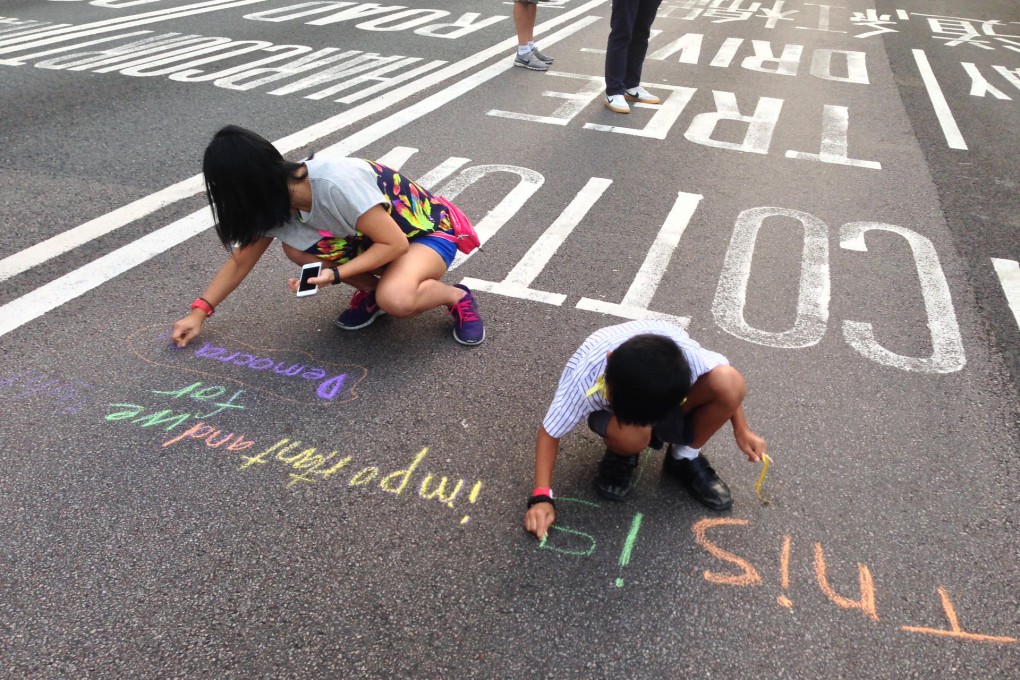Protests offer students chance to learn about social issues and history
Educators see the pro-democracy protests as a chance to teach students about civics, history and even comparative governments

One outcome of the "umbrella protests" has been to turn the events of the past few weeks into living, breathing classes in history and politics.
Many of the student activists know the issues they're demonstrating for, but for others, the meaning behind the events can be confusing. Educators and parents are seizing the opportunity to teach the issues that are part of the Occupy/student protest movement. International and local schools are treating these events as a "teachable moment" in civics education, humanities, history and media relations. What's more, all the stakeholders - students, parents, educators and administrators - are learning from one another.
"As an IB [International Baccalaureate] school, our teachers are expected to keep in mind the IB mission statement, which is to encourage students across the world to become active, compassionate and lifelong learners who understand that other people, with their differences, can also be right," says Tim Kaiser, upper school principal of the Canadian International School of Hong Kong (CDNIS).
Soon after the Occupy protests emerged last month, school administrators encouraged teachers to establish an age-appropriate platform of discussion. Teachers were asked to remain as objective as possible in debate, discussions and expression of views through writing, art or drama.

"The strength and vibrancy of our humanities curriculum allow our teachers to present this subject to all our learners through an integrated approach to concepts such as power, communities, perspective, change, and systems," Kaiser says. "In the Primary Years Programme, 'systems' may be a difficult word for our youngest learners to understand, so part of their learning is centred on an understanding of how we organise ourselves."